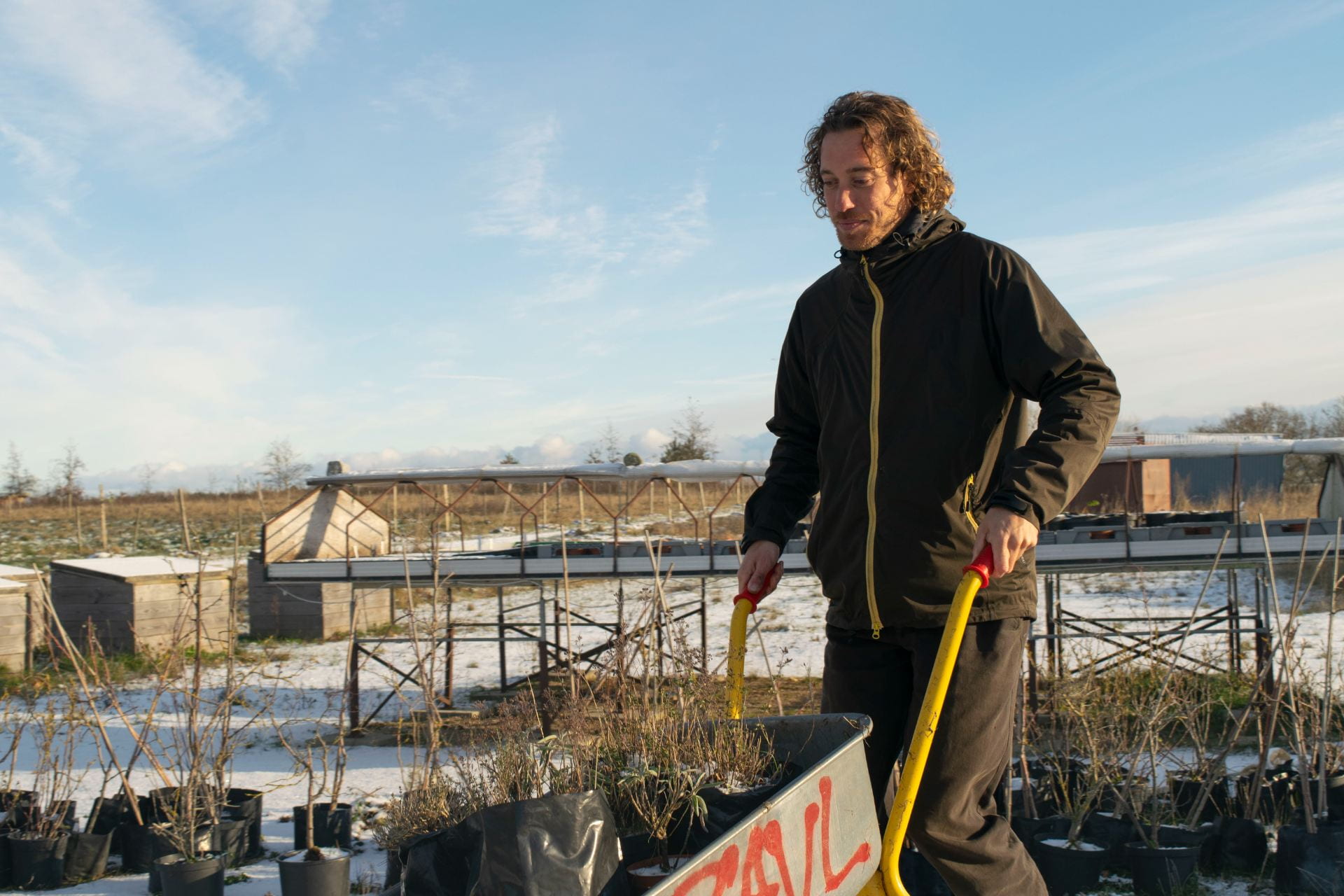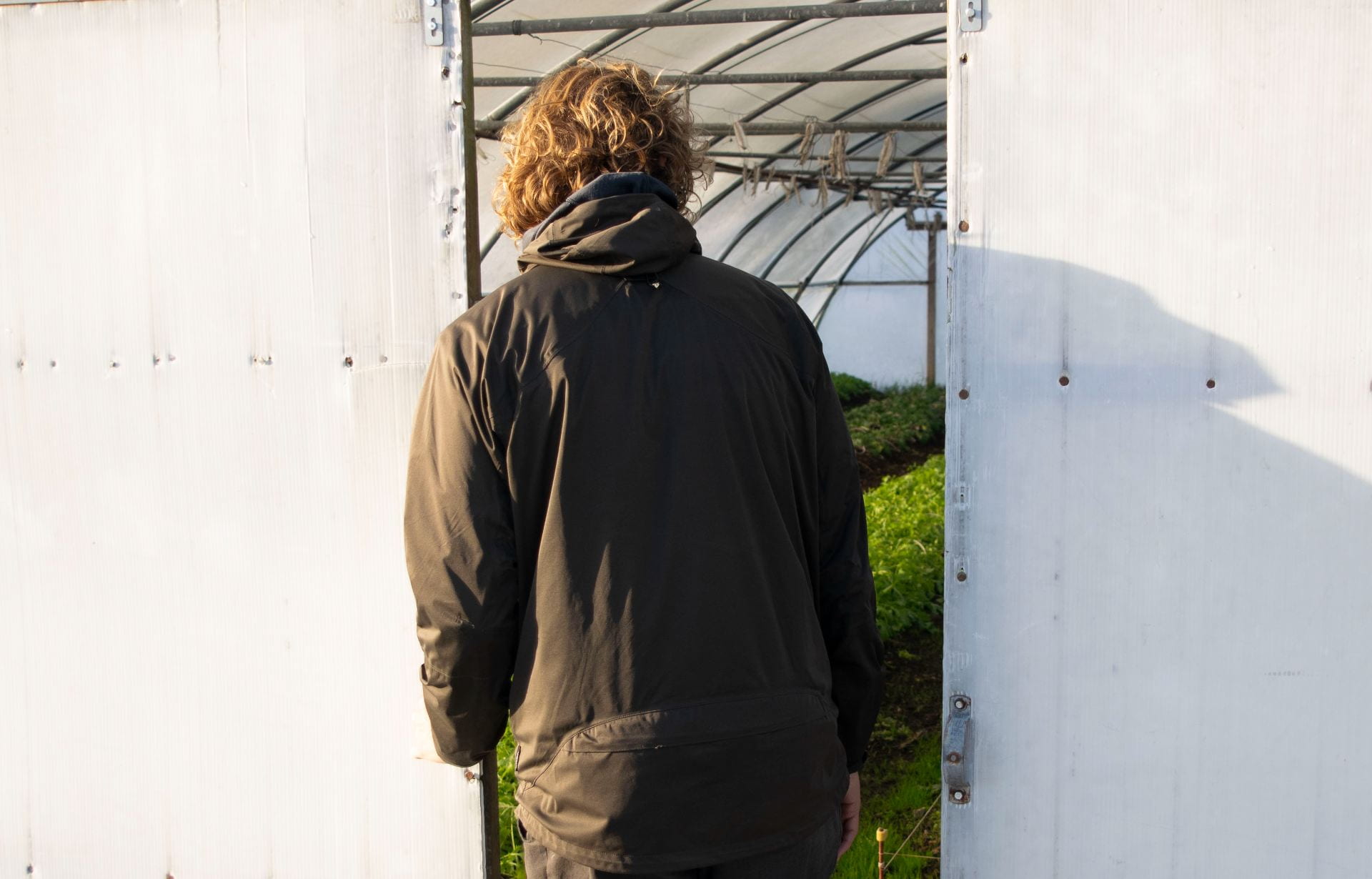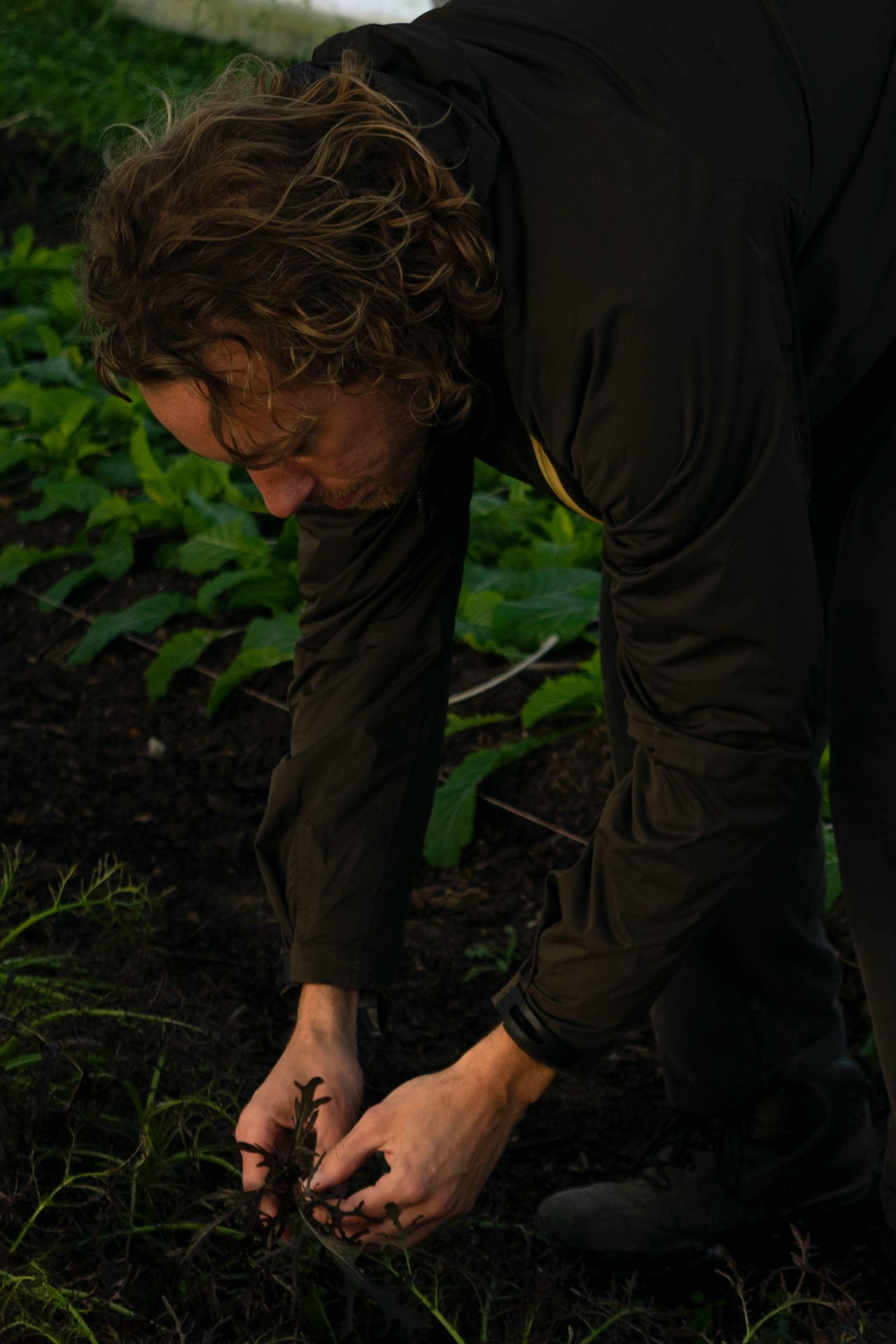
Jeppe’s journey into the world of organic farming began with a simple curiosity about the origin of the food he consumed.
After earning a degree from Roskilde University and a career in conservation and sustainability, the 32-year-old from Sjaelland decided it was time for a change. Since beginning his apprenticeship in organic farming from Kalø, he developed a new aspiration that overlaps aspects of business, farming and sustainability.
“I would like to have a café or restaurant and call it farm-to-table, a concept where you only produce what you want to use for minimal waste on the farm,” Jeppe explained. “My farm should be holistic with some animals, but mainly vegetables. I’m also vegan, so I would like to promote that.”
Starting a farming business from scratch is not an easy task, especially for a newcomer to farming. First generation farmers face multiple challenges: High economic capital is necessary to establish a viable farm business, and as a first generation farmer, Jeppe doesn’t have the same network, self-confidence and practical experience as others who were born into a farming background.
Nevertheless, he remains optimistic about his dream.
“I believe in creating resilient ecosystems on farms — moving away from monoculture.”
“As a student, I recognize the impact I can make,” he explains. “I believe in creating resilient ecosystems on farms — moving away from monoculture.”
Green restaurants are a big trend in Copenhagen, where Jeppe lived for a decade before moving to Kalø, he explains. This relatively new type of restaurant minimizes its carbon footprint by re-thinking all processes, like growing vegetables, re-using resources, and optimizing energy consumption. The socio-environmental movement aims to reduce negative impacts of primary production on the climate whilst ensuring fair returns for the farmers.

Today, organic producers make up approximately 4,000 of Denmark’s 35,000 farms. Organic farming is one way to counteract harmful implications for the environment, such as reducing emissions and water pollution. However, the structural conditions must also be adapted accordingly.
“Responsibility lies with farmers, but politicians at national and EU levels can regulate and provide subsidies,” he urges. “Ultimately, those in power should consider sustainable practices to avoid depleting our resources. Biodiversity is declining, and we need collective responsibility. It’s not just on farmers; it’s a shared effort.”
Intrigued by the concept of growing crops and raising livestock without the use of harmful chemicals, Jeppe found a supportive environment at Kalø that nurtures his passion for sustainable farming from crop cultivation to animal husbandry. He appreciates the change of pace and balanced lifestyle that Kalø offers its students.
“I found it kind of trivial to live in the city,” he explains. “I thought it was time for something new in terms of my career, but also for my self-development. All this knowledge that I learned at the university — about food systems, ideology, access to resources, city life and new ways of living — this is the place where I can practice it.”
Weeding — a seemingly unpopular farming task — is one of Jeppe’s favorites. He enjoys spending time in the fields and the farm’s greenhouses, being close to the plants and getting his hands dirty.
“There’s no feeling like crouching in the field, smelling and touching the plants, soil under your fingernails,” he describes.
Life on the college farm is a harmonious bubble, but it can also be intense at times. To keep their zen, some of the students on Kalø start their mornings with a swim in the bay — even in the heart of the winter months — followed by a morning stretch and breakfast together.

While this new lifestyle might be an uncommon one, Jeppe argues that the holistic sustainability encouraged on Kalø wasn’t too big a jump for the city-person-turned-farmer.
“Being a farmer is quite hip actually,” he says with a smile.